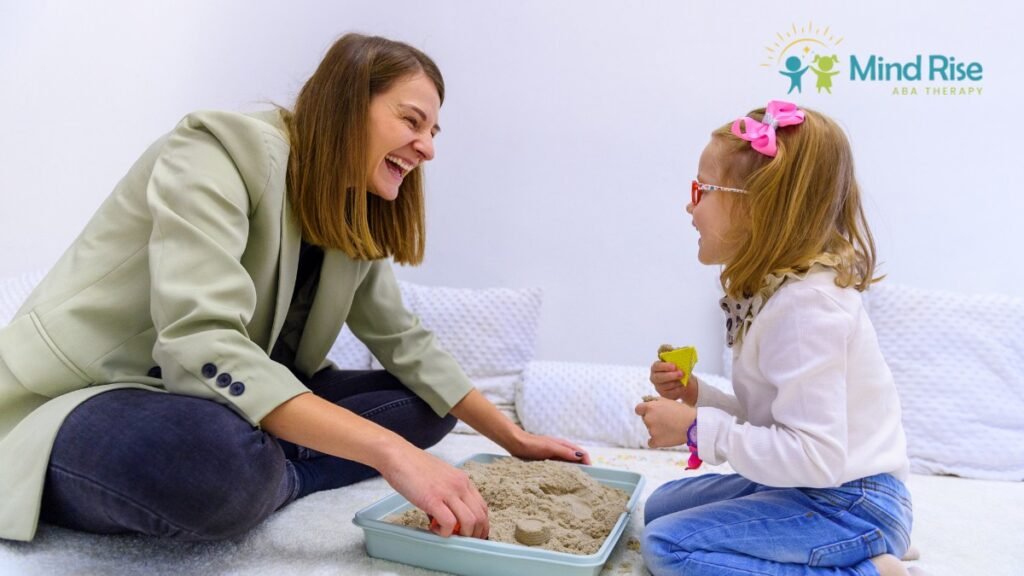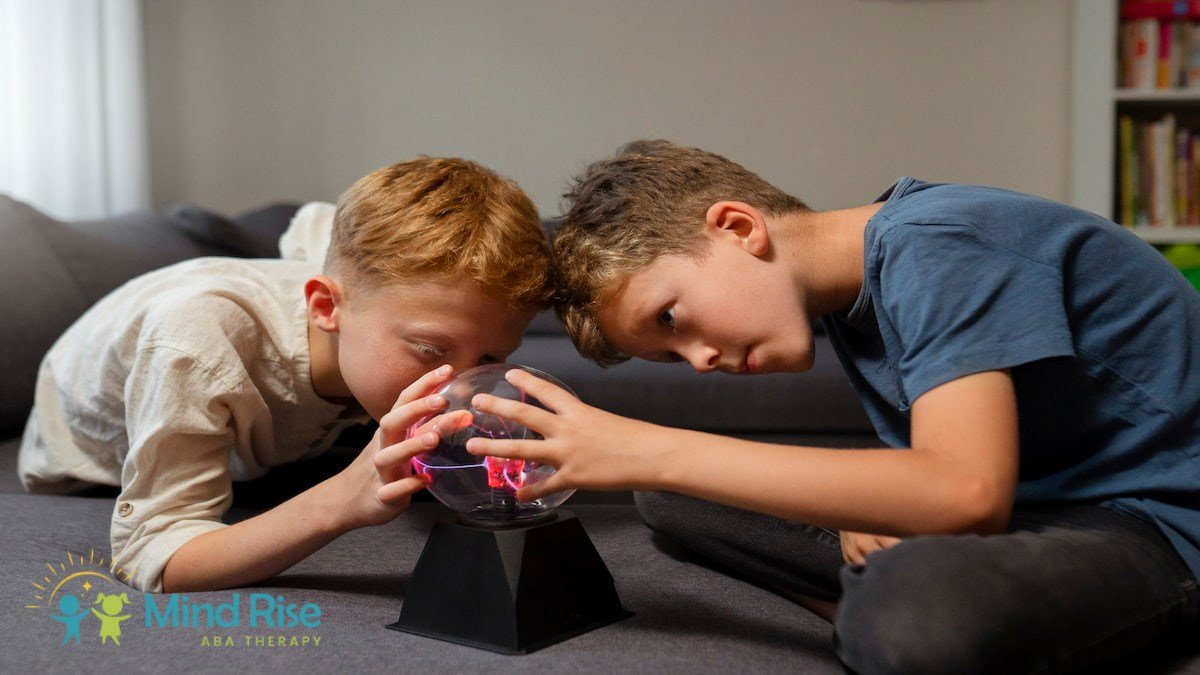Key Points:
- Early ABA intervention can significantly improve developmental outcomes for children with autism.
- Starting therapy at a young age capitalizes on brain plasticity and critical developmental windows.
- Parents can prepare for intervention by understanding therapy goals, collaborating with providers, and tracking progress.
Navigating the journey after an autism diagnosis can be overwhelming for families, especially when deciding where to begin. For parents in Virginia, understanding the importance of early ABA intervention is crucial. ABA therapy providers in Virginia, like Mind Rise ABA, focus on delivering tailored early interventions that can transform a child’s developmental path. Starting ABA therapy early harnesses a child’s natural learning potential, helping build communication, social skills, and independence. This article walks you through why early intervention matters and how to make the most of it.
Why Early Intervention Makes a Difference
The early years of a child’s life are marked by rapid brain development. This period, often called the critical window, is when the brain is most adaptable and responsive to learning new skills. ABA therapy leverages this plasticity by using structured techniques to encourage positive behaviors and reduce challenging ones. Research consistently shows that children who begin ABA therapy early show more significant gains in language, socialization, and adaptive skills than those who start later.
ABA in Virginia emphasizes early detection and action because waiting can mean missing vital developmental opportunities. When ABA therapy begins during toddlerhood or preschool years, it lays a foundation for better outcomes in school, home life, and community engagement.
What Early ABA Intervention Focuses On
Before diving into therapy, it helps to understand what early ABA aims to accomplish. These goals are tailored but generally include:
- Communication Skills: Teaching functional communication methods, whether verbal or nonverbal, to express needs and emotions.
- Social Interaction: Encouraging play, sharing, and turn-taking to build friendships and emotional connections.
- Behavioral Regulation: Identifying and reducing challenging behaviors that interfere with learning or safety.
- Daily Living Skills: Promoting independence through tasks like dressing, feeding, and hygiene.
Early intervention targets foundational skills that support a child’s overall growth and help reduce the need for more intensive support later.
How to Prepare for Early ABA Intervention: A Practical Guide
Starting therapy is a big step, and preparation can make the process smoother for both you and your child. Here are key steps to get ready:
- Understand the Evaluation and Diagnosis Process
Before therapy begins, a thorough assessment helps identify your child’s strengths and challenges. This evaluation often includes observations, parent interviews, and standardized tests. Knowing what to expect during this stage can reduce anxiety and help you gather useful information. - Gather Developmental and Medical Records
Collecting your child’s medical history, developmental milestones, and any previous assessments helps ABA providers tailor therapy effectively. Detailed records give insight into behaviors, health conditions, and learning styles. - Set Realistic Goals With Your Therapist
Early ABA therapy thrives on collaboration. Discuss what progress looks like for your family and child. Goals should be specific, measurable, and flexible, reflecting your child’s unique needs and family priorities. - Create a Supportive Home Environment
ABA is most effective when skills practiced in therapy are reinforced at home. Prepare your family and caregivers to participate in strategies like consistent routines, positive reinforcement, and communication techniques taught by therapists. - Plan for Consistency and Commitment
Early intervention requires regular sessions, often multiple times a week. Scheduling therapy at times that minimize disruption to your child’s routine helps maintain engagement and progress. - Track Progress and Adjust as Needed
Keep notes on what’s working and any challenges encountered. Open communication with your ABA team allows for adjustments to strategies and goals, ensuring therapy remains relevant and effective.
Benefits of Early ABA Therapy in Virginia
Engaging in early ABA therapy offers several tangible benefits for families and children:
- Improved Language and Social Skills: Children develop better communication, which reduces frustration and behavioral issues.
- Increased Independence: Mastering daily living skills boosts confidence and reduces parental stress.
- Behavioral Improvements: Structured approaches decrease repetitive or harmful behaviors.
- Better School Readiness: Early skills translate into smoother transitions into educational settings.
Providers like us at Mind Rise ABA in Virginia see firsthand how early intervention creates a ripple effect, helping children reach milestones that once felt out of reach.
What to Expect in Early ABA Therapy Sessions

ABA sessions for young children typically include play-based learning, structured tasks, and positive reinforcement. Therapists use techniques such as discrete trial training (DTT), natural environment teaching (NET), and pivotal response treatment (PRT) to engage children in meaningful ways.
Sessions often involve:
- Repetition of skills with gradual increases in complexity.
- Visual supports like pictures or schedules.
- Rewards such as praise, toys, or snacks to encourage participation.
- Parent coaching to extend learning beyond therapy hours.
Flexibility is key, with therapists adjusting techniques based on how your child responds.
Addressing Common Concerns About Starting Early
It’s natural to have questions or doubts before beginning therapy. Here are some common concerns addressed:
- “What if my child isn’t ready?” Early intervention is designed to meet children where they are developmentally, so therapy is tailored to readiness and paced accordingly.
- “Will therapy be overwhelming?” Qualified therapists balance structure with play and fun, keeping sessions engaging rather than stressful.
- “How soon will I see results?” Progress varies by child, but small wins often appear within weeks, building momentum over time.
- “What about insurance and costs?” Many insurance plans in Virginia cover ABA therapy, and providers can help navigate billing and authorizations.
Taking the Next Step With ABA Therapy in Virginia
Starting early ABA intervention can feel daunting, but it’s also a hopeful and empowering step. At Mind Rise ABA, we’re committed to partnering with families in Virginia to provide compassionate, individualized care. Our approach supports your child’s growth while respecting your family’s values and routines.
If you’ve recently received an autism diagnosis or suspect developmental delays, early ABA intervention can make a significant difference in your child’s future. By investing time and energy into therapy now, you’re laying a foundation for lifelong skills and confidence.
Contact us today to learn more about ABA therapy in Virginia and how we can support your family on this journey. Together, we can help your child reach their full potential.


